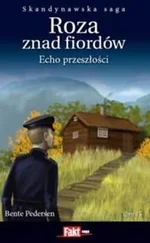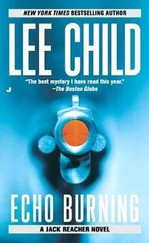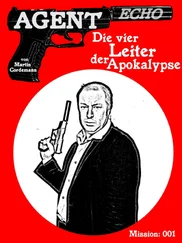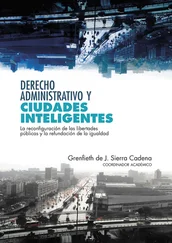I engaged the auto-steer and followed him below, a bit stunned by the implications of what he had said. And I thought I heard a low growl coming from the direction of the sail store. It sounded like a large and antagonised dog. Remembering Spalding’s dog, I listened hard, still for a moment. Toby, it had been called. It was a bull mastiff and had a vicious temper. With a shiver, I remembered the odd experience in the Lepe boatshed. I paused and listened. But all I heard was the churn of water under the hull, the slap against the prow of small waves, the pull and sigh of rigging above. I smiled to myself. Dogs did not live to the age of ninety. It must have been a snarl unkinking in the anchor chain, something like that. Old sailing boats were noisy at sea by definition.
I paused outside the door of my father’s cabin. I wanted to continue our conversation. I felt flattered by the idea that he wanted me to extend the family, by the notion that there was a fund of love in him waiting to be spent, lavished, on a son or daughter of mine. It meant that he was finally and completely over the disappointment of my failed vocation. And he wanted Suzanne to be the mother of his grandchild. I had known he liked her. I realised then that he probably loved her. She was kind and clever and amusing and independent and she made his only son happy. It occurred to me, too, that she was the same age as the daughter he lost would have been. I wondered how often, looking at Suzanne, that thought had occurred to him.
I could hear opera music from behind his cabin door – the Germanic stuff, of course – a Heldentenor wailing sonorously about a water nymph or some such, no doubt with a spear in his hand and a helmet with horns on his head. His sturdy torso would be clad in burlap sacking, cinched by a sword belt. I shook my own head, grinning, and lowered the fist I was about to knock with, deciding to leave him to it. There would be plenty of opportunity for us to discuss personal matters, the important, intimate stuff of life. There was no hurry. It was not as though we could escape one another’s company aboard the boat for very long. Perhaps that had been my father’s motive in inviting me, or among his motives. We were close. I was close to him, because I chose not to compete with him. But in his business life, generous with everything else, he had been a miser with his time. Now we were to spend a fair bit of it together and I was pleased at the thought. But there was no rush, so I left him to his Wagner in his cabin and went back on deck.
It was almost fully dark. The weather was very clear. I could see the lights of no other vessels but, looking up, could make out the faint twinkling of the first stars. In practical terms, crossing open sea was much less demanding of seamanship than sailing around the coast of Ireland had been. Along a coastline there were currents, riptides, sandbanks and submerged rocks. Fog was a hazard and the seagoing traffic heavier. There were trawlers to avoid as they turned for their home ports after a night’s fishing in the dawn murk. But traversing an ocean, out of sight or reach of the safety of land, aware of the profound depths beneath you and your isolation, brought psychological pressures that vastly outweighed practicalities.
Awed at that moment, as full darkness descended, I was also aware of just what freedom a boat represented. It was a very exclusive sort of freedom, of course. It helped to have a wealthy father to endow you with the privilege. Ironically or not, that was something I had in common with Harry Spalding. In having this boat built, Spalding had engineered his freedom, his licence to sail the oceans, to roam the world unaccountably, a rich stranger in its remotest ports and harbours. You had to wonder what his motive had been. Because it had not very likely been a simple love of the sea, had it? What had Spalding done with all that freedom?
I shivered. It was cold without the sun. And the answer to the question I had just asked myself was that we would never know. The Dark Echo ’s log had been destroyed. And with it had perished any hope of uncovering Spalding’s secrets. I shivered again, and it was not just the wind off the dark sea and its chill that made me do so. I did not want to discover Spalding’s secrets. What I knew already suggested they were sadistic and insane. The boat was a better legacy than her first master had deserved. My father and I would surely put the freedom she gave us to more innocent use than he had. If we had not already earned our berths aboard her, then over the coming days we would surely do so.
I heard a noise again then, a kind of keening howl that sounded like a dog. I tried to tell myself it was a whale. There were whales in these waters. There were other marine mammals capable of barks and cries that would carry on the wind, distorting, for miles. There were porpoises and seals. But it seemed to have been coming from the direction, under the deck, of the sail store.
I engaged the auto-steer and went below. There was a sheath knife in my cabin and I ducked in there to grab it. I had not heard a rat. But what I had heard had not sounded friendly or well disposed. So I opened the hatch to the sail store with the knife in the grip of my right hand. I switched on the row of wire-bracketed lights that lit the long, low space. I could see no dog. I could see no movement. All I could see was pale folds of Dacron and loops of neatly coiled ropes and block tackles depending from hooks screwed into that section of the bulkhead. But there was a smell. It was sour and feral. And to me it smelled canine. It put me in mind of the wolf enclosure at the zoo in Regent’s Park, near the football pitches, before they got rid of it. That same smell had drifted over the pitches from the wolf enclosure, when the wind was right. I looked again. A big dog would have left hair and strings of drool, wouldn’t it? There was nothing. I turned out the lights and relatched the hatch. It was my imagination.
But I was slightly spooked. So after putting the knife back, I went and knocked on my father’s cabin door. Supper would be my pretext. I’d offer to cook something, ask him what it was he wanted to eat before retiring to his berth.
The opera was very loud. He had poured himself a large measure of whisky. A cigar smouldered in an ashtray and the air in the cabin was yellow with the fug of smoke. He had the guns out of the cabinet. They were on his desk. He was cleaning and loading them. One, a semi-automatic rifle, had been disassembled and the action lay in pieces on a swatch of oily cloth. The ammunition – the shells and cartridges – was coiled in thick bandoliers and spilling from white cardboard boxes of bullets. My father eyed me down the sights of a carbine held one-handed and took a drag on his Havana. He did not look very grandfatherly.
‘Readying yourself for World War Three, Dad?’
‘You need to be prepared, Martin,’ he said. ‘We are in an environment that could turn hostile.’
‘Way to go,’ I said. It seemed to me a life raft might prove more useful.
‘Sit down, son.’
There were high splotches of colour on his cheeks and forehead.
‘Have you taken your medication, Dad?’
He waved the question away and the smoke from his cigar piroutetted lazily. Someone in the chorus in the opera hit a long, lamentable note. Unless the sound was the ghost of Spalding’s dog, keening for its master. A substantial wave hit us then and the boat juddered and I had to steady myself by gripping the edge of my father’s desk. One of his ammunition boxes toppled and brass-jacketed bullets spilled out on to the desktop, some rolling from the desktop on to the floor.
‘I said sit down.’
I pulled a chair across obediently and sat.
‘All that talk earlier, about Chichester.’
Читать дальше












